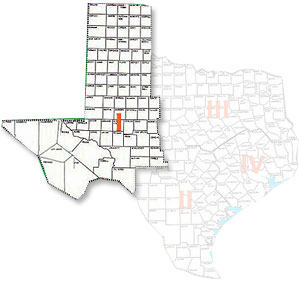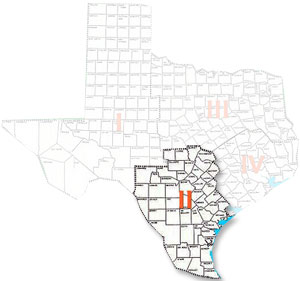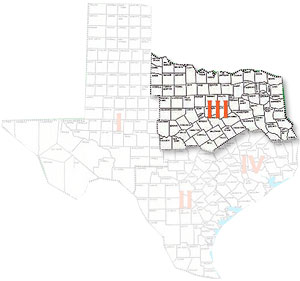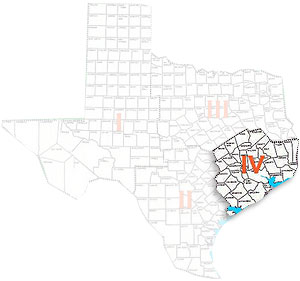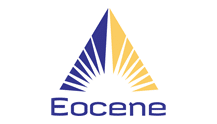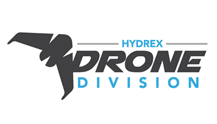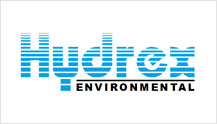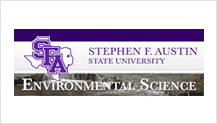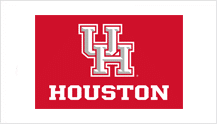Policies & Procedures
 AIPG Mailing List Policy
AIPG Mailing List Policy
(April 23, 2013)
AIPG headquarters maintains a database with the currently active membership, including postal and e-mail addresses. This is used, among other things, for the annual dues/ballot mailings, for distribution of the journal, for announcements about the annual meeting, and for regular mailings to the membership about news or feedback from the membership. The list is constantly being updated. Inquiries have recently arisen concerning (1) Requests for the list for mailings not directly concerned with the society (e.g. campaigning), in the form of e-mail addresses. Concerns about protection of the members’ privacy rights and the administrative burden of providing such lists must be weighed against the potential benefit to members from such expanded access. The following is the current official policy about membership mailing lists of AIPG.
- The membership list in all its forms is a confidential document that belongs to the members of AIPG for purposes directly related to the field of geology and the working of the society. It will not be made available to outside parties except for legitimate purposes.
- Under no circumstances can a list be used to participate in or promote activities that are illegal or violate the AIPG Code of Ethics.
- Mass mailing lists are not intended for messages such as those of a personal nature, those soliciting support for charity or special causes not connected with an AIPG effort, those expressing personal opinion, or that support public debate or campaigning.
- There exists a member-search function on the AIPG website, which allows searching for individual members contact information. However, it does not support bulk retrieval of member contact information.
- An updated e-mail list of the currently active members can be prepared at any time (together with a list of postal addresses for members for whom we do not have a current e-mail address) for use by the officers of the society or the society’s committees. This list can be used to notify members of society business or alert them to more detailed information newly posted on the website.
- The AIPG email list will not be supplied to any member for purposes other than for uses directly related to the business of AIPG.
AIPG Definitions
(Revised January 12, 1991)
- “Geology” is the science that treats the Earth and its origin and history, in general; the investigation, including collection of specimens, of the Earth’s constituent rocks, minerals, fossils, solids, fluids including surface and underground waters, gases, and other material from the center of its core to the outer limits of its atmosphere; the study of the Earth; and the application and utilization of this knowledge of the Earth. The knowledge and principles of geology also are applied to extraterrestrial bodies.
- “Professional geological work” is application of the principles, theories, laws, and body of knowledge encompassed in the science of geology at an advanced and skillful level requiring education, experience, and the capability of interpretation and evaluation.
- “Geologist” is a person who, by reason of his or her knowledge of geology acquired by education and practical experience, is qualified to engage in the practice of geology.
- A “Professional Geologist” is a geologist who has accumulated a minimum of eight (8) years’ post-baccalaureate experience in the practice of geology as a vocation, and who has a sustained record of adherence to exemplary standards of professional and ethical conduct.
- “Practice of Geology” is the performance of geological service or work including but not limited to consultation, investigation, evaluation, planning, mapping, and inspection of geological work, and the responsible supervision thereof. A person shall be construed to practice or offer to practice geology, within the meaning and intent of this definition, who practices any branch of the profession of geology; or who by verbal claim, sign, advertisement, letterhead, card or in any other way represents himself or herself to be a geologist; or through the use of some other title implies that he or she is a geologist; himself or herself as able to perform or who does perform any geologic services or work recognized by the Executive Committee of the Institute as the practice of geology.
AIPG Policy Regarding State Registration/Licensing of Geologists
(Adopted October 6, 1989 – Revised June 23, 2007)
AIPG fully supports the registration and licensure of geologists to protect the public health, safety, and welfare. Where there is no statutory regulation of geologists, the AIPG believes its certification of professionals by their peers as to their competence, integrity, and ethical behavior provides a standard to effectively protect public health, safety, and welfare. As the national organization of professional geologists, AIPG further recognizes the need for and advocates uniformity of standards so that the mobility of geologists will not be impeded, and so that their varied skills may be available throughout the nation.
AIPG Policy on Appraisals of Mineral and Related Interests
(Adopted January 12, 1991)
AIPG’s position is that appraisals of interests in real or personal property should be performed by those best qualified. Thus, appraisals of mineral, or other geologically related, interests should be performed by geologists, or in some cases engineers, who are qualified to do so by appropriate training and experience. Federal and State laws that govern such appraisals should reflect this philosophy.
AIPG Policy on the Clean Water Act
(Adopted January 20, 1996 – Amended June 11, 2011)
The American Institute of Professional Geologists believes that water quality throughout the nation must be protected and in many areas restored. The framework established under the Clean Water Act has enabled the Federal, state, and local governments, working in concert with industry, to make progress toward cleaner water. Further, the Act has served to promote recycling and reuse of substances that might otherwise be discharged into the nation’s waters. The Clean Water Act should continue to be funded in order to restore and protect our nation’s waters. We believe that flexibility in implementing the most beneficial and cost-effective treatment of wastewater is the most efficient incentive. Water conservation is needed and should be encouraged.
AIPG Policy on the Safe Drinking Water Act
(Adopted January 20, 1996 – Amended June 11, 2011)
In 1974 Congress passed the Safe Drinking Water Act that required the Environmental Protection Agency (EPA) to establish drinking water standards and monitoring requirements to ensure that American systems deliver safe drinking water. As amended by Congress, the Safe Drinking Water Act outlines EPA’s standard-setting procedures and establish a monitoring program. The EPA was required to issue regulations for 83 contaminants in 3 years and 25 new contaminants every year thereafter. The amendments also required surface water to be disinfected and filtered and ground water to be disinfected, significantly increasing compliance costs.
The American Institute of Professional Geologists believes that, in determining national standards for water quality, Congress should direct EPA to base its standards on scientifically sound principles for protection of human health. The ability of EPA to require water systems to test for additional contaminants must consider the human health risk posed by the contaminant. Congress must eliminate specific numbers goals for identification of new contaminants in drinking water. It is the role of EPA to establish scientifically sound standards that will assure safe drinking water for every citizen in the nation, and human health should be the basis for any contaminant assessment and treatment program.
AIPG Policy on Groundwater
(Adopted January 20, 1996 – Amended June 11, 2011)
Groundwater contamination continues to be a critical issue. Groundwater withdrawals have continued to increase. To prevent further deterioration of groundwater supplies and groundwater quality, the American Institute of Professional Geologists believes that coordinated groundwater planning and management is necessary to preserve this precious resource. Groundwater policy should be built upon existing Federal, state, and local laws and management techniques. Any policy should recognize the diversity of hydrologic, climatic, economic, legal, and social factors within various states and regions. Concerted water conservation programs are encouraged. Interstate compacts or agreements are needed and encouraged to resolve interstate disputes.
AIPG Policy on National Water Resources
(Adopted January 20, 1996 – Amended June 11, 2011)
The National Water Resources Policy that has evolved over the last several decades exists today as a cumbersome and poorly coordinated effort to manage our nation’s water resources. Jurisdiction for Federal water projects is scattered throughout agencies of the Federal government and committees of Congress. The American Institute of Professional Geologists sees a need for clearer, more coordinated, and more consistent Federal policies. These policies should recognize and build upon constitutions, statutes, policies, and programs of the states as a fundamental basis for a national effort toward better water resource management.
The role of the government is to establish a framework of national objectives for the protection, management, restoration, development, and use of water and related resources to meet national economic, environmental, and social objectives and to assist in implementing such actions with state and local governments. There must be continuity in support of water management programs. There must be flexibility in the entire support system for water resource planning and management. National policy must be flexible enough to accommodate both environmental and economic differences that vary by region.
AIPG Policy on the Use of Professional Seals
(Adopted January 20, 1996 – Amended June 11, 2011)
The American Institute of Professional Geologists (AIPG) recognizes that the purpose of a professional seal or stamp, including the electronic image thereof, is to authenticate geological documents prepared by or under the supervision of the person whose seal is used. The use of professional seals or stamps is encouraged where applicable and appropriate.
Geological documents include any document or illustration, paper or electronic, resulting from professional service or supervision of professional service, where such service requires the application of geological principles or data.
The “Certified Professional Geologist” and other professional seals or stamps should be applied only to those documents for which the person whose seal is imprinted takes full professional responsibility. If more than one person accepts responsibility, the document should bear the signature and seal of each and a notation indicating the portion(s) of the document for which each accepts responsibility.
AIPG recommends legal proscriptions against the making of changes to a document sealed by a professional geologist. If changes are required, either a new document incorporating the changes shall be prepared, or an addendum noting the changes shall be made. Each document, original, new, or addendum, is the professional responsibility of the document’s author(s).
AIPG Policy on Relationships between Professions
(Adopted July 14, 1997)
Some aspects of geology and other professions are inter-related and inter-dependent, and activities in one field may bring close contact with one or more of the others. In order to provide guidance for individual practitioners and regulatory agencies, it is desirable to clarify professional relationships at the interface between the professions.
If an individual by formal training and experience has become qualified in more than one profession according to the standards of those fields within a jurisdiction, that person should then be privileged to be licensed, certified, or otherwise legally qualified to practice, in those fields in that jurisdiction and to operate within the applicable standards of those fields.
It is recognized that an individual who is qualified principally in one profession may, by formal training or by experience, have acquired a working knowledge of aspects of other fields pertinent to that person’s principal activities. In such cases, the practitioner should be adequately guided and constrained by the statutes and code of ethics associated with his or her primary professional affiliation.
Questions that arise about activities at the interface between professions may not have a clear resolution within the applicable statutes and may require judgment as to the extent to which practice in the secondary field(s) may be “incidental” to practice in the primary field. When statutory boards exist, the matter should be resolved between them on a case-by-case basis, with each notifying the other when such a question arises. In the partial or total absence of such boards, the matter may require resolution through mediation or arbitration.
All decisions in such matters should be based solely on the technical and ethical qualifications of the individual as they apply to the task in question and, particularly, to the protection of the public. The protection of the public should be the paramount consideration.
AIPG Policy on the Exercise of Professional Judgment
(Adopted March 31, 1998)
The American Institute of Professional Geologists (AIPG) strongly supports the use of professional judgment as the primary guiding factor in the study or assessment of any particular site or physical location. Each professional geologist must be free to exercise professional judgment as guided by his or her education, past training, and relevant experience. Professional judgment is critical to the appropriate use of the principles and methods required for the study of any particular site or physical location with respect to its intended use or remediation. AIPG considers that prescriptive professional practice standards relating to geologic practice are contrary to the public interest.
The use of prescriptive standards discourages the recognition or consideration of the geologic factors and circumstances making each particular site or physical location unique. Unconsidered application of prescriptive standards may result in some unnecessary activities being done and other necessary activities being left undone. In addition, such prescriptive standards will prevent the use of new and improved methods for addressing the problem in question. While AIPG recognizes that various informal “standards” exist and that such standards can be useful, these standards are necessarily incomplete guides due to the uniqueness of each site and thus require the exercise of professional judgment in their application. Any geological study must be based on sound scientific principles, data, and reasoning, and these bases should be well documented.
AIPG Policies for Book Publishing
(Adopted January 20, 1996 – Revised October 3, 1999)
I. Types of Books Published by AIPG
Proceedings
Proceedings of meeting symposia/sessions. Prepared camera-ready (author-typed manuscripts), usually 8.5″ x 11″ pages, sometimes soft cover, sometimes hard cover. For some proceedings, the symposium/session organizing committee has established a review procedure. Some are indexed.
Monographs
Single-topic publications, generally by one to four authors. Peer reviewed. Directed to students or practicing professional geologists. Soft cover, 5.5″ x 8.5″. Prepared camera-ready (author-typed manuscripts). Examples: Appraisal of Construction Rocks; The Professional Geologist as Expert Witness.
Manuals
Single-topic publications, for guidance of AIPG Student Chapters, Districts, Sections, National Officers and Committees, and Headquarters personnel. Prepared camera-ready. Usually 5.5″ x 8.5″, soft cover. Examples: Education for Professional Practice and Student Chapter Operations Manual.
Textbooks
Single or multiple topic publications designed and written for teaching purposes. Peer reviewed. Prepared camera-ready or typeset. Usually 8.5″ x 11″. Soft or hard cover. Usually indexed. May have a companion slide set. Example: Technical Writing as a Process Within a System.
Public Service Symposia
Single or multiple topic publications, well illustrated with color photos and graphics, usually of 36 – 100 pages, 8.5″ x 11″, by one or more authors. Peer reviewed. Designed and written for the purpose of informing the non-geologist citizen or government officer. May be used as a textbook. May have a companion slide set. Prepared camera-ready or typeset, soft or hard cover, usually indexed. Example: The Citizens’ Guide to Geologic Hazards.
“Issues & Answers” Series
Single topic publications, well illustrated with color photos and graphics, usually about 36 pages, by one or more authors. Peer reviewed. Soft cover, 8.5″ x 11″. Designed and written for the purpose of informing the non-geologist citizen or government officer. May be used as a supplementary textbook. Prepared camera-ready or typeset, with a glossary and references. Examples: Home Buyers’ Guide to Geologic Hazards and Petroleum Issues and Answers.
Short Course (Continuing Education) Notes
Single topic course notes prepared by the Instructor(s) for presentation in continuing education courses. Prepared camera-ready. 8.5″ x 11″, soft cover or loose-leaf. May include a glossary and references. Availability may be limited to those who actually enroll in the course. Examples: Operations Management; Marketing & Contracts; Planning & Control; Management of Organizations.
Miscellaneous
Publications not appropriate for other classifications. Examples: Policy statements (individual, or as collections of related policies); Honors and Awards Booklets and Instructions to Authors.
II. Proposals
Proceedings
Proposals for symposia are generated by a group within the Institute (e.g., a Section, Annual Meeting Committee, Education Committee, etc.) or by an outside group.
Requirements: Proposers indicate size of book (5.5″ x 8.5″, 8.5″ x 11″, etc.), number of papers (chapters), minimum and maximum length of papers (e.g., 10-20 pages), number of persons who would be interested (potential market size), deadlines they expect to meet, and any page contribution payments that they expect to arrange. A content outline must accompany proposals for Proceedings. It is recommended that the proposers consult with the Publications staff and Institute Editor when the proposal is considered.
Monographs, Textbooks, Public Service Symposia, and “Issues & Answers” Series
Proposals for monographs, textbooks, public service symposia, and “Issues & Answers” series are generated by an individual or group of authors, or by the Editor.
Requirements: Proposer(s) submit an outline, naming the Author(s) and the Compiling Editor, and number of pages, the target market, the potential market size, and deadlines they expect to meet, and any page contribution payments that they expect to arrange. Payments by contributors will be acknowledged in the publication.
Manuals and Miscellaneous
Manuals and miscellaneous publications usually are proposed by, or within, the Executive Committee. These publications may be prepared by a member of the Headquarters staff, a committee appointed for the purpose, or by a consultant working under the direction of Headquarters.
III. Disclaimer, Assignment and Transfer of Rights, and Copyright
A. Disclaimer – This Disclaimer must appear in all AIPG Publications, including those in the process of development at the time this policy amendment is adopted.
“The information published in (NAME OF PUBLICATION) is intended solely to inform readers. This publication is not intended to be a substitute for professional advice. The facts and materials contained in this book are the authors’ judgments and opinions. No warranty of any kind, either expressed or implied, is made by the American Institute of Professional Geologists regarding the truth or accuracy of any fact or purported fact stated in this book. Neither the American Institute of Professional Geologists nor its individual sections, members, affiliates, authors, editors, technical reviewers, dealers, or distributors shall be liable to the purchaser or to any other person or entity for any loss, liability, or damage caused or alleged to be caused by the use of, misuse of, or reliance on the information contained in this book. By using this book, the reader agrees and acknowledges that this book is sold without warranty of any kind, either expressed or implied, with respect to the contents of this book, and without warranty of merchantability or fitness for a particular purpose.”
B. Assignment and Transfer of Rights – This Assignment and Transfer of Rights must be executed by all authors of all AIPG Publications, including those publications in the process of development at the time this policy amendment is adopted.
Assignment and Transfer of Rights
The undersigned (“Author”) hereby assigns and forever transfers title to the American Institute of Professional Geologists (“AIPG”), all right, title, and interest, including any and all copyrights, in the materials submitted to AIPG in connection with the development, writing, and publication of a Work to be entitled. This assignment of all right, title, and interest in the Work to AIPG is a transfer to AIPG of the full ownership in and to the Work including all rights of reproduction, distribution, performance, display, modification, and the right to create derivative works. The Author agrees to execute any further transfers, assignments, or other documents(s) as requested by AIPG from time to time that will facilitate this assignment and transfer.
The term “Work” as used in this document includes all of the Author’s notes, drafts, memoranda, final drafts and proofs, work sheets, graphic designs, and any and all relevant documents related to the Work.
The Author has entered into this Assignment and Transfer voluntarily and understands that all rights to the Work created are owned and will be owned by AIPG, provided, however, that the Author will have the right to use the Work for his own personal use and in connection with the teaching of the materials contained in the Work.
AIPG, for its part, agrees to provide to the author 25 copies of said publication free of charge for exclusive use by the author.
[NOTE: The following language provides a representation from the Author to AIPG] The author warrants that he/she is the sole owner of all rights in and to the Work; that the Work is original with the Author and not in the public domain; that the Work does not violate or infringe any existing copyright; and that the Author has full power to enter into this Assignment and Transfer.
| ___________________________ | ___________________________ |
| Author | Author |
| ___________________________ | ___________________________ |
| Date | Date |
C. Copyright – AIPG will be the sole proprietor of all AIPG publications. The requirement that AIPG hold the sole Copyright may be satisfied by way of a legally executed Assignment and Transfer of Rights.
IV. Approval & Acceptance
All publication proposals must be approved and accepted by the AIPG Editor or, if beyond his/her cost-approval authority, by the AIPG Executive Committee. All galleys (or proofs) must be approved by the AIPG Editor prior to publication.
AIPG Section Relations
(Revised April 21, 1988)
Sections of the Institute are not independent entities, but rather each is an integral part of the AIPG, a single, united organization.
Section Requirements
The following operational and financial requirements are placed on Institute Sections by the Executive Committee:
Operations
- Sections are subject to all AIPG Bylaws provisions.
- Sections are encouraged to support and promote, or to oppose, passage of any state or federal legislation or regulation that affects geologists, the profession of geology, or the welfare of the public. Such actions shall comply with the AIPG policy on advocacy.
- Sections shall operate on the same fiscal year as the national AIPG.
- The election and installation of Section officers shall coincide with those of the National officers of the Institute.
- The AIPG Executive Committee has the authority and the obligation to remove from office any Section officer who does not uphold and properly adhere to the Institute’s Bylaws and policies.
- The Section President shall submit an annual report to the National Secretary that will summarize Section activities. The report is due on or before March 1 of the following calendar year.
- No Section is to schedule a meeting on a date conflicting with any national meeting of the Institute.
Finances
- All Section financial resources are the property of AIPG. Sections and Section treasurers are authorized only to manage the funds for the Institute.
- All Section financial accounts will be controlled and maintained by the Section Treasurer, as authorized by the National Treasurer, under the name of “American Institute of Professional Geologists-(Respective) Section.”
- Section treasurers shall keep an accurate accounting of all Section income and expenses. Any money taken in as income or disbursed as expense by the Section must go through the Section checking or savings account.
- Sections may not incur debt beyond the assets of the Section.
- Sections shall not undertake any fund-raising activity without the express permission of the AIPG President or the National Executive Committee.
- Section annual dues amounts must be approved by the AIPG Executive Committee.
- Section treasurers shall prepare and submit a year-end Section financial accounting (annual expense/income) on the proper IRS form summary to the National Headquarters. The report is due on or before April 1 of the following calendar year. A Section’s dues will not be sent out until this report is received by Headquarters.
AIPG Policy on Advocacy
(Adopted July 12, 1986)
AIPG is an association of professional geologists organized in part to strengthen the geological sciences as a profession. Individual Members of the Institute share a collective sense of responsibility to assure that geological research and expertise are made available to benefit all mankind. AIPG encourages its Members to exercise their personal sense of responsibility and values in individually addressing current political and social issues.
In addition, the Institute through its elected officers and Executive Committee may act on issues that affect the public health and safety or the geoscientific community, and establish policy positions consistent with results from a poll of its Members. Policy positions adopted by the Institute will be consistent with its unique position as an objective source of information, analysis, and opinion for the full spectrum of the geosciences.
Accordingly, the following policies will guide AIPG when it speaks on public issues.
- The Institute has a responsibility to its Members to adopt positions of advocacy on public issues involving the geological sciences or their application to public issues. Such advocacy will be based solely on the merit of each issue and the needs of the public.
- To the extent that the understanding and application of geology is relevant, AIPG will offer to make information available to all parties interested in the issue.
- The Institute will not take or advocate public positions in its name on judgmental issues that extend beyond the professional practice of geology.
- Public positions adopted by AIPG, and statements issued on its behalf, must be based on sound evidence and must reflect the opinions of its Members, consistent with an appropriate poll of Section or Institute Members.
Methods and Choices for the Institute to Provide Information
AIPG may provide input into the legislative process in a variety of ways that are described below. The President and/or the Executive Committee will consider the appropriateness of each option in each individual case.
Option 1: AIPG-endorsed testimony
This is an official opinion based on a review, endorsement, and poll of Members or Sections. It may be presented:
a. In person by an officer or official representative of the Institute, or
b. In written form.
Option 2:
AIPG may arrange for testimony, written or oral, to be given by a knowledgeable Member in his or her own name.
This can be accomplished through the President, Section presidents, or the Governmental Affairs Committee. One or more qualified Members may be selected to present a statement or testimony. Such expert testimony is useful in providing a government body with factual data from a reputable source and does not commit the Institute to endorsement of the testimony.
Because this option can be quickly arranged, it may be used by the Institute in response to requests for expert testimony. The Member presenting testimony may be asked to state that his or her appearance: “Has been arranged by the American Institute of Professional Geologists, but that AIPG does not necessarily endorse or sponsor these remarks.”
Option 3:
AIPG may join with other interested groups in development and presentation of testimony about matters of mutual concern.
AIPG may take joint action with or endorse a position of other scientific or professional societies.
An officially-designated representative of AIPG, working with similarly appointed persons from other societies, may agree to a jointly-developed statement on some issue.
Quality vs. Quantity of Responses
Because of the volume of proposals for legislation and agency regulations each year, it is impractical and counterproductive for AIPG to attempt to address every bill that has implications for geologists. The Institute finds it more productive to review the merits of pending issues, prioritize in order of significance to the geoscience community, and concentrate its efforts on those policies of greatest impact. The opinions of Sections must help guide these efforts.
AIPG Screening Policy For Applicants
(Revised January 14, 1995)
Introduction
The American Institute of Professional Geologists has, as its unifying purpose, the goal to strengthen geology as a profession. Each member of the Institute must qualify for membership on the basis of sound education and a record of experience performed in accord with high standards of competence and integrity. The Institute establishes qualifications for granting the title “Certified Professional Geologist” and certifies to the public that those geologists who hold this title have undergone peer review and have been deemed competent practitioners who are worthy of public trust.
In order to assure that the maximum information is obtained for this review, the Institute publishes the name, address, and sponsors for each applicant in its monthly publication The Professional Geologist. The Institute invites members with knowledge of the applicant to contact Headquarters in writing with such information. Comments received are then added to the application package and considered during the review process.
The careful screening of applications reflects the Institute’s obligation to the general public. The decision to accept an applicant for membership constitutes an endorsement and recommendation of that individual’s competence and credentials. AIPG’s ability to properly serve the public, and the resulting acceptance by that public of AIPG, requires strict maintenance of the reputation and integrity of the Institute’s certified Members. Moreover, the success of the Institute depends on the quality of its Members.
General Delineation of Responsibility
The ultimate responsibility for acceptance or denial of an application lies solely with the National Executive Committee of AIPG. However, in order to expedite the conduct of the Institute’s business affairs, the AIPG National Executive Committee delegates authority to its National Screening Committee, as described below.
The National Screening Committee is empowered to accept those applicants whose documentation clearly indicates that they fully meet the requirements set forth for AIPG certification. The National Screening Committee is further empowered to reject applicants who do not provide satisfactory evidence that they have fulfilled the requirements set forth in the Institute Bylaws, Screening Procedures, and this Screening Policy.
The National Screening Committee, in turn, delegates to the Institute’s Sections the task of initially reviewing those applications received from their respective geographic areas.
Should one or two national reviewers question an applicant’s qualifications for certification, the application will be referred to the National Executive Committee for a final decision.
Applicant information received by AIPG will be considered confidential. Application materials will be divulged only to those directly involved in review of that particular application.
Section Screening Guidelines
Each AIPG Section shall have a Screening Committee whose Chairman is appointed by the Section President. Committee Members are usually recruited by the Chairman. Like all other Section committee chairmen, he or she reports to the Section President.
The purpose of screening at the Section level is to investigate the qualifications of the applicant, to confirm the accuracy and ensure the sufficiency of the documents submitted by the applicant. Although the recommendation of the Screening Committee will be considered by the National Screening Committee, the decision to accept or reject an applicant will be made at the National level.
Section Screening Committee Members, in carrying out their responsibilities, will be covered under the Institute’s liability insurance policy and the indemnification clauses of the Institute’s Articles of Incorporation.
AIPG Policy on Applicant Sponsors
(Revised April 24, 1999)
Relation of Sponsors to Applicant
Relatives may be the individuals who best know an applicant on a personal basis. However, despite all efforts to be objective, such relatives may be biased in their professional judgment of the applicants. Therefore, sponsors for an applicant may not be immediately related by blood (i.e., first cousins or closer) or marriage to the applicant.
The Chairmen and Members of the Section Screening Committees may not act as sponsors for AIPG applicants that will be reviewed within their section. The Chairman of the National Screening Committee may not act as a sponsor for AIPG applicants. Members of the National Screening Committee may act as Sponsors for AIPG applicants, with the stipulation that they may not review the application. If appropriate, Members of Screening Committees may verify geological work experience of applicants.
Relation of Sponsors to Each Other
When an application is received by Headquarters on which all of the sponsors are from the same company or organization, or whose only contact with the applicant came from the same project or company experience, then Headquarters at its own initiative or at the request of a Section Screening Committee Chairman, shall ask the applicant to furnish sponsor forms from at least one sponsor not connected with the same company or organization. If the applicant is unable to obtain such an additional sponsor, he or she may submit a letter explaining why this is so. In such cases the Section Screening Committee may personally interview the applicant prior to approving or disapproving the application.
Individuals, while applicants of the Institute, may not serve as sponsors for another applicant.
The following named organizations are recognized as Sponsoring Societies under the provisions of Bylaws Articles 2.3.1, so long as those organizations accord similar recognition to AIPG on behalf of its Certified Professional Geologists. The organizations recognized are the Geological Society (GS) on behalf of its Chartered Geologist, the Irish Association for Economic Geology (IAEG) on behalf of its Professional Members, the European Federation of Geologists (EFG) on behalf of its European Geologists, and the Division of Professional Affairs of the American Association of Petroleum Geologists (DPA-AAPG) on behalf of its Certified Petroleum Geologists. The Executive Committee may withdraw such recognition, without notice, at any time.
AIPG Policy on Evaluating Educational Qualifications in lieu of Standard Academic Coursework
(Adopted February 17, 1992)
Section 2.3.1 of the Institute Bylaws states, “in lieu of the foregoing, evidence satisfactory to the Executive Committee, or a Committee of Examiners duly appointed by it, of sound knowledge and proficiency in geology.”
In the event an applicant for AIPG Certification or Candidate for Certification requests acceptance of educational qualifications on the basis of this Section, the following steps shall be followed.
- The applicant will submit to the Committee of Examiners (the Committee) copies of documents that, in the applicant’s judgment, clearly demonstrate knowledge and proficiency in geology. These shall include, but not be limited to, work products created in the course of normal job performance. The documents also shall include descriptions of the specific tasks performed and responsibilities held.
- If, in the opinion of the Committee, the submitted documents clearly demonstrate sound geologic knowledge and proficiency, then they will be accepted by the Institute in lieu of standard academic coursework. Those documents will then be included in the applicant’s complete application package and the file will continue through the normal review process.
- If, in the opinion of the Committee, the submitted documents do not clearly demonstrate sound geologic knowledge and proficiency, the Committee may request additional documents from the applicant to supplement or clarify any points that the Committee feels were not addressed in the originally submitted documents.
- If, in the opinion of the Committee, the applicant has not clearly demonstrated sound geologic knowledge and proficiency, the applicant may request that an oral examination, conducted by the Committee, be held at AIPG Headquarters. The applicant will prepay the estimated costs associated with the oral examination. Any overpayment will be refunded. A record of the examination will be made a part of the application documentation.
- If the applicant’s documents (including the record of the oral examination, if applicable) are not accepted by the Committee of Examiners in lieu of academic training, the applicant may request that all documents submitted by the applicant, along with all reports from the Committee of Examiners, be reviewed by the Institute’s Executive Committee. A three-fourths vote of the Executive Committee will be required for approval. The decision of the Executive Committee will then be considered final.
AIPG Disciplinary Procedures
(Adopted July 23, 1989 – Revised 2004)
Section 1. Allegations of Misconduct
1.1. Allegations of Misconduct Against Members
Allegations against any member of the Institute, whether by another member or by a member of the public, which are based on an alleged violation of any part of the Code of Ethics, on the conviction of a felony or other offense related to the practice of geology, or on discipline imposed by governmental, regulatory, or licensing agencies and/or professional certifying, chartering, or similar professional organizations, shall be directed to the Ethics Committee Chairman, care of the Executive Director. The Executive Director shall forward any such allegations received to the Ethics Committee Chairman within seven days of receipt.
1.2. Allegations of Misconduct Concerning Applicants
Allegations against or objections to admission of an applicant for membership based on an alleged violation of any part of the Code of Ethics, on the conviction of a felony or other offense related to the practice of geology, or on discipline imposed by a governmental, agency regulatory, or licensing agencies and/or professional certifying, chartering, or similar professional organizations, however received, shall be added to the application file. The Screening Committees may refer the application to the Ethics Committee Chairman at any time during the screening process prior to submission of the application to the National Executive Committee for final action. If the Ethics Committee Chairman proceeds pursuant to Section 1.4 of these procedures, final action on the membership application by the Screening Committees shall be suspended until disposition of the matter pursuant to these procedures. If other independent and valid grounds exist for rejection of the applicant, the application may be denied without prejudice regarding the ethical issues involved.
1.3. Contents of Allegations of Misconduct
Allegations shall be made in writing; shall be based on the personal knowledge of and be signed by the person making the allegations, shall identify the member or applicant against whom the allegations are made (the respondent), and shall describe the conduct giving rise to the alleged violation(s). Allegations shall be accompanied by copies of any letters, reports, documents, or statements upon which the allegations are based, and a list of persons (potential witnesses) who have personal knowledge of the matter, including a brief statement of what the knowledge of each such witness is alleged to be.
1.4. Review of Allegations of Misconduct
Allegations shall be reviewed initially by the Ethics Committee Chairman within 15 days of receipt of the allegations. Following this review, the Ethics Committee Chairman may take one or more of the following actions.
1.4.1. Dismiss the allegations, in whole or in part, for lack of evidence, insufficient grounds, or other good cause including the availability of adequate legal recourse, and so advise the person making the allegations and, in the case of an applicant for membership, the appropriate Institute or Section membership committee;
1.4.2. Request additional information from the person making the allegations, within a specified amount of time. The additional information requested may include additional documentation and/or a more specific statement as to the nature of the allegations.
1.4.3. Appoint an investigator to conduct an investigation to determine whether there are grounds to proceed in the matter and to prepare a report for the Ethics Committee Chairman.
a. The investigator shall not be a member of the National Executive Committee and shall not normally be a member of the Section of which either the person making the allegations or respondent is a member. In any case, the Ethics Committee Chairman shall avoid appointing an investigator having a conflict of interest with either the person making the allegations or the respondent. The Ethics Committee Chairman shall provide both the person making the allegations and the respondent with the opportunity to object to the appointment of a particular investigator as part of and subject to the provisions of paragraph (b) of this section.
b. In the event that an investigation is commenced, the Ethics Committee Chairman shall notify the respondent of the fact of the investigation in writing, unless to give such notice would severely and irreparably impair the investigation. Notification pursuant to this section shall provide information about the respondent’s rights under these procedures, including a statement that initiation of the investigation does not constitute a finding by the Ethics Committee Chairman or the Institute that a violation of the Code of Ethics has occurred, a statement of the respondent’s right to counsel at the respondent’s sole expense, a general description concerning the application and administration of these procedures, and the consequences of resignation of membership or withdrawal of an application by the respondent, should the respondent choose that method of terminating the procedures.
c. The investigator shall make appropriate inquiries of the person making the allegations, the respondent, any identified witnesses, and/or any other persons who the investigator believes may have relevant information about the matter. The investigator can request or otherwise obtain copies of any documents, maps, drawings, etc. needed to make a determination regarding questions arising during the investigation. The documents, maps, drawings, etc. can be in paper or electronic form as determined by the investigator. The investigation shall be conducted with due regard to confidentiality as set out in section 5.2 of these procedures and shall contain the statement required by section 1.5 of these procedures. The investigator and the Ethics Committee Chairman may confer during the course of the investigation as to its progress and direction.
d. Counter charges: in the event that a respondent makes counter charges against a member who is making the allegation, such charges shall be made in the same manner as the original allegations. These counter charges shall be considered as part of the mix of information obtained during the investigation.
e. At the conclusion of the investigation, the investigator shall prepare a report that shall include the investigator’s findings and any further documentary evidence developed or uncovered by the investigation. The Ethics Committee Chairman, the investigator, and Institute counsel may work together to ensure that the investigator’s report is complete and contains an adequate basis for all conclusions reached, which basis can include the absence of information supporting an allegation.
1.5. Initiation of an Inquiry or Investigation Does Not Necessarily Mean a Violation Has Occurred.
Initiation of an inquiry or investigation following receipt of allegations against a member or applicant does not mean that a determination has been made that a violation of the AIPG Code of Ethics has occurred. It means that further information is required in order to make a determination regarding the allegations. Such further information may lead to a dismissal the allegations or a determination that further proceedings are warranted. All correspondence and other communications relating to an inquiry or investigation should explicitly state that no determination regarding the validity of the alleged violation has been made.
1.6. Consequences of Failure to Respond to Investigator’s Questions
Failure to respond to an investigator’s questions or requests for information may result in one of more of the following consequences.
1.6.1. If the person making the allegations fails to provide additional required evidence or to provide witnesses willing to make signed statements, the case may be dismissed for lack of evidence.
1.6.2. If the respondent fails to provide his or her side of the alleged actions, including supporting documents and witnesses, a case may be brought on the basis of the information obtained from other sources. Further, an adverse inference against the respondent may be drawn from failure to comply with reasonable requests for information and documents.
1.6.3. Failure by a member who is a potential witness to provide information requested by the investigator may result in initiation of a separate disciplinary proceeding to determine if the member has violated Standard 2.1 and Rule 2.1.3 and Canon 5 and Standard 5.5.
1.6.4. If a person from whom information is requested responds to the request in a timely manner explaining why the requested information cannot be provided, this response will be considered in deciding what, if any, further actions are appropriate.
1.7. Action Following Review
1.7.1. Upon receipt and review of the further information or the more specific statement from the person making the allegations (or upon the expiration of the time for providing same), or upon receipt and review of the investigator’s report, or both, the Ethics Committee Chairman shall promptly either dismiss the allegations or proceed with further disciplinary action by bringing formal charges in accordance with these procedures.
1.7.2. If a determination is made to dismiss the allegations, the member or applicant against whom the allegations were made may make a written request to the Ethics Committee Chairman asking for release of a copy of the summary of the inquiry or investigation and a statement of the reasons why the allegations were dismissed. The Ethics Committee Chairman may grant the request after taking into consideration the character of the allegations, the degree to which the person making the allegations made them to others, and the best interests of the Institute in deciding whether to grant the request. If the Ethics Committee Chairman grants the request and releases the requested summary and if the summary is made part of a legal or disciplinary proceeding, the party wishing to use the summary and/or testimony shall be responsible for all legal, travel, and other reasonable fees, including professional fees, and expenses incurred by the Ethics Committee Chairman, the investigator(s), and/or other Institute officials who may be called to provide evidence or to serve as witnesses in the legal or disciplinary proceeding.
Section 2. Formal Charges and their Adjudication
2.1 Preliminary Matters
2.1.1 Notice to Respondent
If formal charges are warranted, the Ethics Committee Chairman shall notify the Respondent of the formal charges filed by the Institute by certified mail, personal delivery, or equivalent means to Respondent’s address on record with the Institute. This notice shall include:
a. A copy of the formal charges, including a statement of the precise conduct alleged to constitute the violation or violations, referencing the specific canons, standards, and rules violated, citing any relevant dates, and identifying any persons alleged to have been involved or to have knowledge of the matter.
b. Copies of all supporting documentation, including but not limited to any records or transcripts of statements of the Institute’s witnesses or others, the investigator’s report, if any, and the Institute’s witness list and description of their expected testimony.
c. A description of the disciplinary sanction sought and the consequences of accepting the proposed sanction.
d. A copy of these procedures.
e. A statement of the respondent’s right to submit within 30 days a written response to the formal charges either admitting or denying the allegations, setting forth grounds for such denial. Such response shall be accompanied by copies of any documentary evidence respondent wishes to have in the record. The respondent may request an extension for submission of the response for a period not to exceed 30 days for good cause shown, which the Ethics Committee Chairman may grant or deny in his or her discretion.
f. A statement of respondent’s right to request, as part of the response, a hearing before an independent adjudicator or, in the case of a respondent member, an adjudicatory board. This request for a hearing shall state whether respondent will be represented by legal counsel at the hearing, and shall include a proposed witness list with a brief summary of what the respondent expects their testimony to be.
g. A statement of respondent member’s right to resign or to accept disciplinary sanction by consent, or of a respondent applicant’s right to withdraw the membership application, as provided in these procedures in Section 6.
2.1.2. Appointment of Adjudicatory Board
Upon receipt of a respondent’s request for a hearing, the Ethics Committee Chairman shall appoint an adjudicatory board made up of no fewer than three disinterested persons, giving due consideration to the complexity of the case and the seriousness of the allegations. If requested by a respondent member, or in the case of a respondent applicant, the Ethics Committee Chairman shall appoint a single adjudicator.
a. No member of the adjudicatory board shall be an Executive Committee member.
b. In most cases, the adjudicator or members of the adjudicatory board shall be Past Presidents of the Institute who are disinterested and who have appropriate knowledge of the technical issues, if any, involved in determining whether the formal charges are true or not.
c. The Ethics Committee Chairman shall notify the respondent of the proposed adjudicator or members of the adjudicatory board in order to provide the respondent with the opportunity to make reasonable and timely objections to the proposed appointment(s) due to conflicts of interest.
d. An adjudicatory board shall select a chairman and a recording secretary.
2.1.3. Failure to Respond to Formal Charges
In the absence of a timely response to formal charges, the Ethics Committee Chairman shall impose the proposed disciplinary sanction that accompanied the notice of the formal charges (see section 2.1.1.c.).
2.2. Hearing
2.2.1. Notice of Hearing
If the Respondent requests a hearing, the Ethics Committee Chairman shall determine a proposed date, place, and time for the hearing in consultation with the respondent, any witnesses, the adjudicator or adjudicatory board, and, having a established a reasonable date, place, and time, shall proceed as follows.
a. The Ethics Committee Chairman shall notify the respondent, the adjudicator or adjudicatory board, and witnesses of the proposed hearing.
b. Respondent shall give notice of any objections to the proposed date, time, or place within five days of receipt of the notice thereof. Upon the expiration of this time, the Ethics Committee Chairman shall promptly set the final date, time, and place, and shall notify the witnesses and respondent thereof.
c. Nothing herein shall limit the right of the Institute to have Institute counsel in attendance at a hearing, whether or not the respondent is represented by counsel.
2.2.2. Hearing procedures
The procedures for the adjudicatory board hearing are informal. Statements are not limited by the formal rules of evidence; however, the adjudicatory board may refuse to admit any material which is not relevant or material to the issues to be determined in the hearing. The hearing shall proceed as follows.
a. The hearing shall be convened by the adjudicator or chairman of the adjudicatory board. The recording secretary shall note for the record the date, time, place, persons in attendance, and representation by counsel, if any.
b. The adjudicator or chairman of the adjudicatory board shall read the allegations, identify the documents submitted in the case, and inquire whether the respondent understands the allegations.
c. The adjudicator or chairman of the adjudicatory board shall give a brief description of the procedures.
d. The adjudicator or chairman of the adjudicatory board shall call for any objections from any party to the proceeding and the recording secretary shall note same for the record. Parties may request sequestration of witness at the time, which shall be granted as a matter of right, upon request except when a witness must hear the testimony of a witness called by the other side in order to present rebuttal testimony. In such cases, the question of sequestration will be considered on a witness by witness basis.
e. The adjudicator or chairman of the adjudicatory board will call for brief opening statements from the Institute (normally represented by the Ethics Committee Chairman but a substitute may be designated), then from the respondent.
f. Following opening statements, the Institute may present testimony and other evidence. The Institute shall not be bound by formal rules of evidence, but shall be permitted to present any material which might be relevant or material. Objections and actions taken thereon by the adjudicator or chairman of the adjudicatory board shall be noted for the record. Each document submitted into evidence shall be marked for identification. The respondent shall have the right to cross examine any witnesses presented by Institute and shall be provided with copies of any documents presented in the hearing as evidence. The adjudicator or any member of the adjudicatory board may also question the witnesses.
g. Following the Institute’s case, the respondent may present testimony and other evidence. The respondent shall not be bound by formal rules of evidence, but shall be permitted to present any material which might be relevant or material. Objections and actions taken thereon by the adjudicator or chairman of the adjudicatory board shall be noted for the record. Each document submitted into evidence shall be marked for identification. The Institute shall have the right to cross examine any witnesses called by respondent and shall be provided with copies of any documents presented in the hearing as evidence. The adjudicator or any member of the adjudicatory board may also question the witnesses.
h. Following the close of the respondent’s case, the adjudicator or chairman of the adjudicatory board shall call for closing arguments, first from the Institute and then from the respondent.
i. Following closing arguments, the adjudicator or chairman of the adjudicatory board shall adjourn the hearing and excuse the parties and witnesses.
2.2.3. Failure to Appear
Should either party fail to appear without giving notice of and reasonable grounds for the failure to appear before the adjudicator or chairman of the adjudicatory board, the adjudicator or adjudicatory board shall conduct the hearing based on the documents previously submitted in the case and the testimony and exhibits of those in attendance.
2.2.4. Decision of Adjudicatory Board
Within 15 days of the adjournment of the hearing, the adjudicator or adjudicatory board shall review the record in the case. The adjudicator or adjudicatory board shall then make a determination as to each allegation in the formal charges, by unanimous vote of the adjudicatory board if employed, within 15 days. The adjudicatory board, if employed, may meet and vote via conference call, at the option of its chairman. The adjudicator or adjudicatory board shall set forth all findings and conclusions in an adjudicatory report to the Ethics Committee Chairman.
2.3. Adjudicatory Report
2.3.1. Contents of Report
An adjudicatory report, whether prepared on the record or following a hearing, shall contain the following.
a. Findings of fact, based on the evidence received and testimony heard in a hearing, if any;
b. Conclusions of the adjudicator or adjudicatory board including a list of allegations dismissed and reasons for dismissal, a list of provisions of the Code of Ethics violated, if any, and a statement of the evidence relied upon in finding each violation;
c. The disciplinary sanction to be imposed on the respondent member as a result of each violation or as a result of the cumulative violations, which may consist of the sanctions provided for in Section 6 of these procedures; and
d. A copy of the record before the adjudicator or adjudicatory board.
2.3.2. Review by Ethics Committee Chairman
Upon receiving the report of the adjudicator or adjudicatory board, the Ethics Committee Chairman shall, within 15 days, review the report to determine whether it satisfies the requirements of these procedures for its form and content, to ascertain whether the determinations are supported by sufficient evidence, and to determine whether any discipline to be imposed or rejection of an applicant is reasonable and consistent with action taken previously in cases of like seriousness. The Ethics Committee Chairman may obtain the assistance of Institute Counsel in review of the report. The Ethics Committee Chairman may then:
a. Return the adjudicatory report for revision. Should the resubmitted report still not satisfy the requirements of these procedures, the Ethics Committee Chairman may return it for a second redraft, at his option. If the resubmitted report fails to contain a showing of sufficient evidence to support the determinations, then the Ethics Committee Chairman shall dismiss any determinations not so supported and permit the rest of the determinations covered by the report, if any, to become the adjudicatory report.
b. Reduce the discipline imposed to a reasonable level or a level consistent with discipline imposed in previous cases of like seriousness, and permit the report to become the adjudicatory report with such reduced discipline, or in the case of a respondent applicant, dismiss a recommendation for rejection and, in the discretion of the Ethics Committee Chairman, require a private admonition as a condition of acceptance.
c. Permit the adjudicatory report to become final, without alteration.
2.3.3. Issuance of Adjudicatory Report
An adjudicatory report shall become final only after review and appropriate action by the Ethics Committee Chairman. It shall then be transmitted, without exhibits, by the Ethics Chairman to the respondent along with notice of his or her right to an appeal to the Executive Committee and the time for taking an appeal.
Section 3. Appeals
3.1. Initiation of an Appeal
3.1.1. Notice of Appeal
Either the respondent or the Ethics Committee Chairman, as the originator of the formal charges, may appeal the adjudicatory report to the entire Executive Committee of the Institute within 15 days of the date of issuance of the adjudicatory report and notice of appeal rights to him or her. Any appeal must state the specific determinations in the adjudicatory report that are being appealed and the basis for each such appeal. The Ethics Committee Chairman shall notify the Institute’s Secretary and the respondent, if the Ethics Committee Chairman is initiating the appeal, of the appeal.
3.1.2. Automatic Review by Executive Committee
If the adjudicatory report concludes that a respondent member is to be terminated, an automatic appeal to the Executive Committee is required, which the Ethics Committee Chairman shall initiate by providing notice to the Institute’s Secretary.
3.1.3. Notice to Executive Committee
The Institute’s Secretary shall promptly notify the Executive Committee members of the appeal and transmit to each of them a copy of the adjudicatory report, the notice of appeal, and the basis for the appeal, including the statements by the parties described in section 3.2.1 and supporting documents. The Institute Secretary shall keep records of the proceeding on appeal.
3.2. Statement of Position
3.2.1. Statements by the Parties
The Ethics Committee Chairman and respondent shall each have 15 days after the date of notice of appeal or of notice of an automatic appeal to submit to the Executive Committee written statements of their positions, which shall not raise any new issues and shall not introduce any new evidence except evidence which could not reasonably have been obtained in time for original formal charges, response, or reply or presented at the adjudicatory hearing.
3.2.2. Appearances by the Parties
Except in extraordinary cases, there shall be no appearances by the parties before the Executive Committee in person or by counsel. A request by either party for such an appearance must be made in writing to the Institute Secretary within the time allowed for the submission of written statements and shall set forth in detail the extraordinary circumstances which the party believes justifies an oral argument. Granting of such appearances is within the sole discretion of the Executive Committee, and, if granted, the Institute Secretary shall notify the parties of oral argument and determine the time, place, and date of same. The Institute Secretary may place reasonable time limits on oral argument.
3.3. Executive Committee Action
3.3.1. Review of Record
The appeal will be considered only on the record in the case and the parties’ statements on appeal. Institute Counsel may be present in an advisory capacity for the deliberations of the Executive Committee.
3.3.2. Decision of Executive Committee
Following review of the record and the written statements, the Executive Committee shall:
a. Adopt the adjudicatory report without alteration;
b. Dismiss some or all allegations giving reasons for dismissal, permitting the rest of the adjudicatory report, if any, to become the final decision of the Executive Committee on appeal;
c. Reduce the disciplinary sanction imposed in the adjudicatory report, or in the case of a respondent applicant, dismiss a recommendation for rejection of the application and, in the discretion of the Executive Committee, require a private admonition as a condition of acceptance of the application;
d. Order a de novo hearing on some or all of the allegations before a new adjudicatory board, in which case the disciplinary sanction which may be imposed against a respondent member will not be limited in its severity by the disciplinary sanction proposed by the first adjudicatory report, nor the action taken with respect to a respondent applicant be limited by the first adjudicatory report; however, no new allegations may be raised at such a hearing.
Section 4. Implementation of Disciplinary Sanction
4.1. Final Report and Notifications
Reports are considered final for all purposes upon the expiration of the period for taking an appeal when no appeal is taken, and upon issuance of the decision of the Executive Committee if an appeal is taken, unless the Executive Committee orders a de novo hearing. The Ethics Committee Chairman shall notify the respondent, and the Executive Committee through the Institute Secretary (when no appeal has been taken), and shall direct the entry of the final report into the Ethics Committee records.
4.2. Administrative Steps
Upon becoming final, the Institute Secretary shall take such administrative steps as are necessary to implement the disciplinary sanction imposed against a respondent member, or to implement a decision with respect to a respondent applicant.
4.3. Notice to Governmental Authorities and Professional Organizations
If the respondent is found to have violated the Code of Ethics and is known to be professionally licensed, certified, or chartered, or otherwise subject to a professional ethics code, the Institute, through either the Ethics Committee Chairman or the Institute’s Secretary, shall notify the appropriate organization(s) of the Institute’s findings; (c.f. Ethics Code Standard 2.1 and Rule 2.1.3 and Canon 5 and Standard 5.5).
Section 5. General Provisions
5.1. Prima Facie Evidence of Misconduct
Except as otherwise provided in these disciplinary procedures, proof of the conviction of an offense or of disciplinary action taken by a governmental law enforcement, regulatory, or licensing agency and/or professional certifying, chartering, or similar professional organizations against a member or applicant is prima facie evidence of misconduct in any Institute disciplinary proceeding. The burden for proving that the allegations leading to conviction or disciplinary action are false in such cases is shifted to the respondent.
5.2. Confidentiality
5.2.1. General
Except as otherwise provided in these procedures, the existence of allegations against any member or applicant and the basis and content thereof are considered confidential. Information concerning the rejection of an applicant on disciplinary grounds shall not be publicly disclosed. The records of the Ethics Committee and the Executive Committee concerning disciplinary proceedings shall be labeled and treated as confidential, and shall not be released except as provided by section 4.3 of these procedures. If discipline is imposed against a member, other than a private admonition, only the Institute may disclose or publish information concerning such discipline and the reasons therefore.
5.2.2. Exceptions
Disclosure of disciplinary records is permitted in the following circumstances.
a. Where disclosure is required by law; or
b. Where disclosure is necessary to pursue the investigation or proceedings hereunder, in which case the person to whom disclosure is made shall be bound by these provisions; or
c. Where disclosure is necessary to avoid a clear danger to public safety or health or to prevent the imminent commission of a crime; or
d. Where otherwise required or permitted by these Procedures or the Institute’s Bylaws.
5.2.3. Breach of Confidentiality
Breach of confidentiality, including by parties to a disciplinary action, may subject those responsible to disciplinary action as the result of allegations made by the aggrieved person or the Institute.
5.2.4. Dismissal of Allegations or Formal Charges for Breach
In the event of a breach of confidentiality of such seriousness that it might prejudice the respondent’s right to a fair adjudication despite any reasonable remedial action, the allegations or formal charges shall be dismissed by the Ethics Committee Chairman if the case is not yet in adjudication, by the adjudicator or the chairman of the adjudicatory board if the case is in adjudication, or by the Executive Committee if the case is on appeal.
5.2.5. Ex Parte Communications
The adjudicator or members of an adjudicatory board and the members of the Executive Committee shall not discuss any substantive matters concerning the allegations with either party to the proceedings or with any person listed as a potential witness by either party. Any member of an adjudicatory board or of the Executive Committee who has participated in such a discussion shall disqualify himself or herself from the proceeding in question and any other related proceedings.
5.3. Dismissals With and Without Prejudice
Unless otherwise stated in the dismissal action, dismissals of allegations or formal charges are with prejudice and such allegations may not then be raised in any subsequent formal charges. Allegations may be dismissed without prejudice for technical filing defects, in the presence of ongoing criminal, civil, or administrative proceedings, or for other good cause.
5.4. Administrative Decisions, Objections, and Appeals
The Ethics Committee Chairman, adjudicator, or adjudicatory board, or the Executive Committee, as appropriate, shall have the authority to make decisions during the course of disciplinary proceedings and appeals concerning the administration of a case and in response to the conduct of and objections made by the parties. Such decisions may be enforced by the imposition of appropriate sanctions on the parties. Objections and decisions shall be noted for the record, but unless otherwise determined by the Ethics Committee Chairman on the basis of a showing of good cause, shall not be subject to appeal until the adjudicatory report becomes final.
5.5. Conflicts of Interest
5.5.1. Guidelines for Conflicts of Interest
By assuming his or her duties for the Institute, each person acknowledges that the best interests of the Institute and its members must prevail over any individual interest. A conflict of interest is a direct or indirect interest that might affect, or might reasonably be expected to affect, a person’s judgment or conduct as a director, officer, committee member, or employee of the Institute. An actual or potential conflict of interest would exist whenever a person has an interest in, or connection with, an individual subject to the Institute’s disciplinary procedures where that interest is of such nature that it might influence the independent judgment of the person. Specifically, the interest might be that of the person, that of another person such as a relative or friend of the person, or that of an organization in which the person or such other person has an interest. Similarly, the interest might be financial or otherwise.
It is not possible to enumerate all situations that constitute a conflict. The facts of each situation will determine whether the interest in question is such as to bring it within an area of actual or potential conflict. Such facts would include the nature of the relationship, the extent to which the person could influence the individual’s decisions, and whether the interest is of such a nature that it might affect the objectivity of the judgment of the person. In determining whether a conflict is involved, there is no substitute for sound judgment in each case based on the particular facts involved.
5.5.2. Ethics Committee Chairman
If the Ethics Committee Chairman has a conflict of interest regarding a Disciplinary Proceeding, that conflict shall be disclosed to the President, or if the President also is in a conflict position, to the Vice President, or the President-Elect, in that order. The President, or alternate if required, shall determine whether the conflict of interest would prevent the Ethics Committee Chairman from effectively serving as chairman in other capacities, including administering other disciplinary proceedings. The best interests of the Institute shall be the governing principle in determining whether the Chairman should be replaced. The President, or an alternate if required, shall appoint an Acting Ethics Committee Chairman for Purposes of the Proceeding, who will have the responsibilities and duties of the Ethics Committee Chairman described in these disciplinary procedures for the particular proceeding, or if warranted, an Acting Ethics Committee Chairman for all purposes. If the conflict of interest arises because the Ethics Committee Chairman is a potential complainant or a witness in a particular disciplinary proceeding, the Ethics Committee Chairman may be a complainant or witness. Such a conflict would not normally prevent the Ethics Committee Chairman from otherwise chairing the Ethics Committee.
5.5.3. National Executive Committee Members and other Institute officers or officials
If a member of the National Executive Committee or any other Institute officer or official has a conflict of interest regarding a disciplinary proceeding, that conflict shall be disclosed to the Ethics Committee Chairman, or if the Ethics Committee Chairman has a conflict, to the Acting Ethics Committee Chairman. As with conflicts involving the Ethics Committee Chairman, a determination shall be made as to whether the conflict would prevent the individual from otherwise serving in his or her official capacity. Also like the Ethics Committee Chairman, members of the National Executive Committee or other Institute officers or officials may be a complainant or witness in the particular disciplinary proceeding.
Section 6. Disciplinary Sanctions
6.1. General
The following sanctions are available. They may be imposed by consent of the respondent or following a finding by an adjudicator, an adjudicatory board, or the Executive Committee following an appeal as provided elsewhere in these procedures. The disciplinary sanctions are provided for by Sections 2.7 and 9.1.3 of the Institute’s Bylaws and are specifically described in Section 9.3.
6.2. Termination of Proceedings with Prejudice by Respondent Member or Applicant
6.2.1. Resignation by Respondent Member
At any time until the adjudicatory report or an appeal, if made, becomes final, a respondent member may resign, at which point all proceedings shall end. A resignation during the pendency of disciplinary proceedings shall have the same effect as termination of membership with prejudice.
6.2.2. Withdrawal of an Application for Membership
At any time until the adjudicatory report or an appeal, if made, becomes final, a respondent applicant may withdraw an application for membership, at which point all proceedings shall end. A withdrawal during the pendency of disciplinary proceedings or the rejection of an applicant on disciplinary grounds shall have the same effect as termination of membership with prejudice.
6.2.3. Discipline by Consent
At any time until the adjudicatory report becomes final, the respondent (whether a member or an applicant) may offer to submit to specified discipline by consent on his own initiative, or may accept a disciplinary sanction offered by the Ethics Committee Chairman, the adjudicatory board, or the Executive Committee, as appropriate, in their discretion. Discipline by consent may include a requirement for remedial action, including training, as specified in the consent. The adjudicator or the adjudicatory board, acting through its chairman, the Ethics Committee Chairman, or the Executive Committee, as appropriate, may accept such offer of discipline by consent, in which case the Institute’s Secretary shall implement the discipline.
6.2.4. Effect of Termination With Prejudice
A member who has resigned during the pendency of disciplinary proceedings or who has been terminated as a result thereof, or an applicant who has withdrawn an application or who has been rejected on disciplinary grounds, shall not be permitted to reapply for membership in the Institute for a period of three years. A reapplication by such former member or applicant shall be referred to the Executive Committee, which may, in its discretion, defer readmission for an additional period not to exceed three years on the basis of the violations indicated in the formal charges. Reapplication may be conditioned on performance of specified remedial action, including training. Thereafter, in the absence of a showing of subsequent additional violations, prior disciplinary action shall not be considered.
6.3. Disciplinary Sanctions
6.3.1. Letter of Private Admonition
A letter of private admonition shall be issued in cases where serious deception, fraud, misrepresentation, or professional misconduct is not charged in the formal charges. A letter of private admonition may be accompanied by requirements for additional actions including resignation of national or section office, requirements for additional training, or other remedial actions. Failure to comply with these additional requirements may result in an additional sanction such as reduction in membership grade or suspension if the additional requirements are not completed in the manner and the time specified.
A letter of private admonition is appropriate for cases in which a member was found to have failed to possess a required license but for which no charges were substantiated showing that serious deception, fraud, misrepresentation, or professional misconduct was involved.
6.3.3. Reduction of membership grade
A respondent member other than an adjunct member may have his or her membership grade reduced for a specified period and/or until specified remedial action, including additional training, is taken. An adjunct member (student or associate member) cannot be reduced in grade and, therefore, will be subject to another sanction. Reduction in membership grade will be imposed in cases involving violations of the Code of Ethics that did not involve substantial harm to the public or to the profession. This sanction may be imposed in cases involving a ruling of insanity or mental incompetence by a legally constituted authority or involving repeated or flagrant violations of the provisions of any professional licensing board or other professional organization.
6.3.4. Suspension of Institute Membership “With Prejudice”
See Section 6.2.4.
6.3.5. Termination
Termination of membership shall be imposed for substantial violations of the Code of Ethics involving substantial harm to the public or the profession including, but not limited to, conviction of felonies or other any other offense related to the practice of geology or to bear on the Member’s or Adjunct’s professional ethics, integrity, and competence.
In The News
Sponsors of the AIPG-TX GEODAYZ Training Program
2022
2018

 AIPG Mailing List Policy
AIPG Mailing List Policy